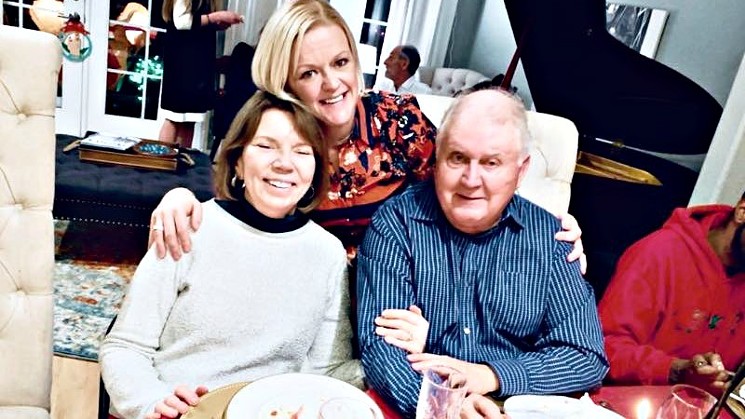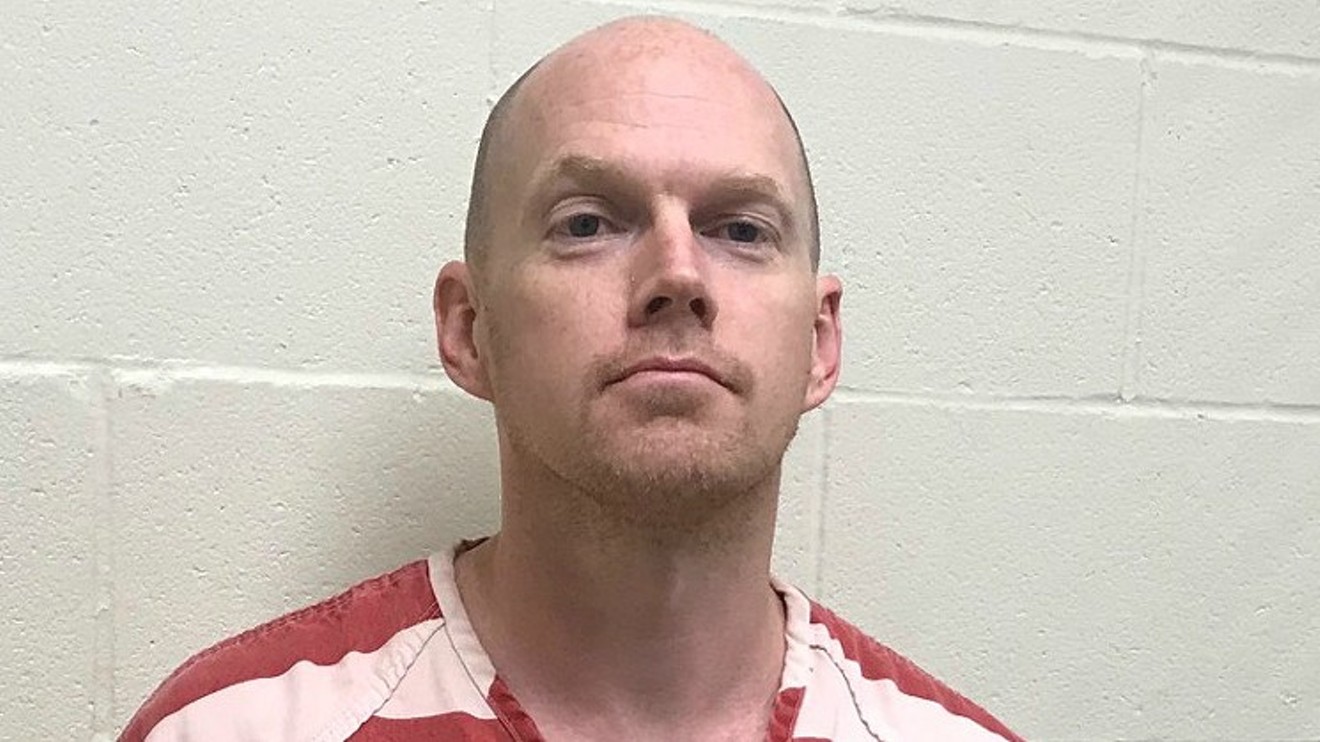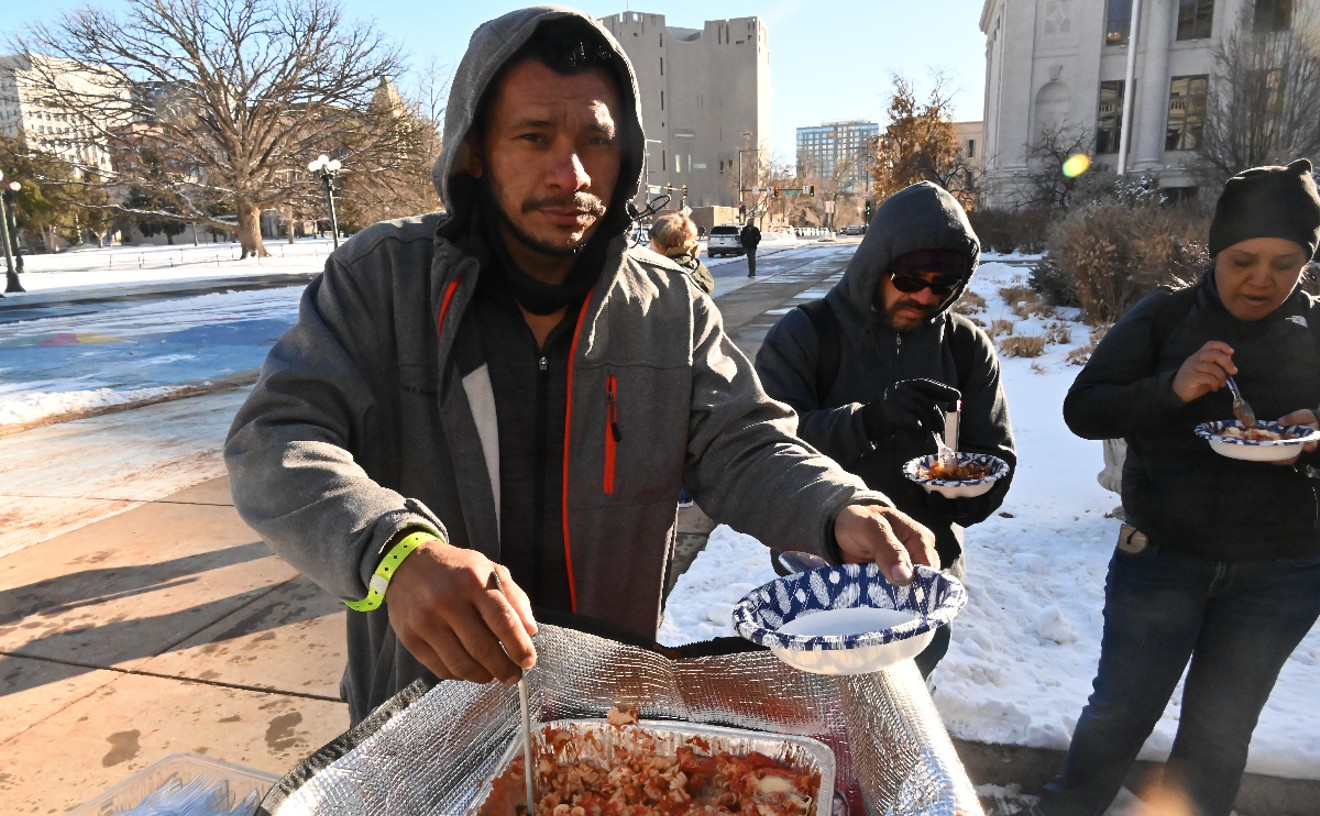A year later, Governor Jared Polis addressed this contradiction by belatedly granting Jensen clemency. According to Curt Jensen, Erik's father, he should be released from the Limon Correctional Facility, his current home, on March 1.
But the quest for justice in Jensen's case has taken a lot longer than that. It began even before his original conviction and has been ratcheting up in recent years. "There have been so many rounds of hope, but we lost every time," says attorney Jessica Peck, who represents Curt and his wife, Pat. "I came on to this case over twelve years ago, and there have been at least five times we believed Erik might get a second chance at life. So when we found out he would, it was a surreal moment."
For Jensen, meanwhile, "there's been a little bit of shock," reveals Lisa Polansky, the lawyer who's been working on his behalf since 2017. "He's been in for over 21 years, since he was seventeen, and he's 38 now. He's excited and thankful, but I think until he walk out those doors, it's not going to feel real, and I think his family is similarly situated. They've just been trying every which way they could to get support from community members and politicians. They had so many people write Governor Bill Ritter and Governor Hickenlooper and now Governor Polis, and they were denied so many times. But even though they might have gotten discouraged at times, they never lost hope."
Indeed, Curt and Pat traveled for hours every week, weather permitting, to visit their son, who expressed his gratitude for their steadfastness in an interview last May at Castle Rock's Douglas County Justice Center. Jensen was temporarily housed at the facility for a hearing at which his sentence was changed to make him parole-eligible after serving forty years — a very small step in the right direction — and during the conversation, he recounted the first step in his horrific legal journey.
In early 1999, as his trial approached, "I was told I could get manslaughter if I postponed the case," he said. "They thought Jim Peters [the late prosecutor at the time] would do that. At the most, that would have been ten to 32 years, and I would be out by now. But then Columbine happened, and after that, they pulled the plea bargain off the table. That was such a huge deal, and they [the Columbine killers] were juveniles my age who lived in the same kind of neighborhood [Jensen is from Highlands Ranch]. That changed the way a lot of people thought about juveniles and crime forever."

Attorney Jessica Peck with Curt and Pat Jensen, Erik's parents, at a celebratory dinner after the clemency announcement.
Courtesy of Jessica Peck
His good behavior wasn't the only thing that argued for commutation; in 2012, the U.S. Supreme Court ruling found life without parole for juvenile homicide offenders unconstitutional. But Colorado's response took years to sort out and fell so far short of addressing Jensen's situation that Polansky opted to try a series of legal tactics. She filed a petition attacking the performance of Jensen's counsel at trial and tried negotiating with the office of 18th Judicial District DA George Brauchler, without success. She also appealed the constitutionality of Jensen's sentence and pursued potential legislative fixes. But the most promising scenario involved commutation.
"Governor Polis has always been open to the idea of looking at these kids' sentences again," she says. "So after Governor Hickenlooper denied our client but granted it to his co-defendant, the actual killer, our primary position was that he should act sooner rather than later to rectify this injustice — and the best way he could do that was to grant him clemency and commute his sentence."
She bolstered this argument by noting that "Erik had accepted responsibility for his piece of what happened in open court and in writing. And we also talked about what an extraordinary person he's become and all the service work he's done."
Indeed, Jensen is an active Christian who helped create two successful programs at Limon. The first, formed in conjunction with Trevor Jones, who was also convicted as an adult in a killing at age seventeen, is devoted to helping addicts move beyond their habits through the combined power of faith and CrossFit; Jensen is a fully accredited trainer, and the project has earned praise from Dean Williams, executive director of the Colorado Department of Corrections. In the second, Jensen, Jones and Jonathan Willis, convicted of felony murder, and other participating inmates serve as assistant pastors to supplement the work of Howie Close, a reformed offender (he was given a 75-year sentence for an early 1990s hate-crime assault on several Japanese students at the former Teikyo Loretto Heights University) now in charge of Woodman Valley Chapel's prison ministry.
When asked why clemency was granted, a representative from the governor's office referenced the commutation letter issued in December; it's accessible below. The key line, which also appears in the letters submitted for the other seven individuals whose sentences were commuted that month, reads: "The constitutional and statutory conditions for granting this clemency petition have been satisfied, and granting this commutation is in the interest of justice."
After the news broke, attorney Peck joined Curt and Pat Jensen for a celebratory dinner. "We had champagne," she recalls. "It's going to be such a moment of joy when he gets out. But after he does, he's going to go right back in to keep helping people. At his sentencing in May, he said there are many days he wakes up in prison and wonders, 'Why am I alive?,' but then he remembers that his purpose is to give everybody else hope. That's the kind of person he is."
For her part, Polansky thinks Jensen's case shows why the legislature needs to rewrite the felony murder statute for juvenile offenders. "They go in so young, and I feel like they deserve the support of the community, because these kids grow up. They've made mistakes, and that one mistake should not define them for the rest of their lives — just like it doesn't define Erik Jensen."
Click to read Governor Jared Polis's letter commuting Erik Jensen's sentence.












